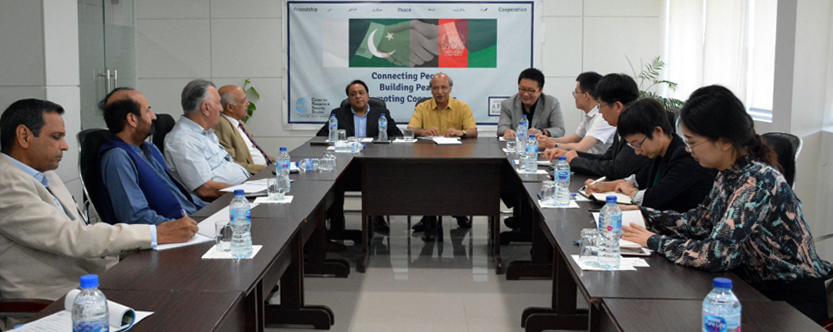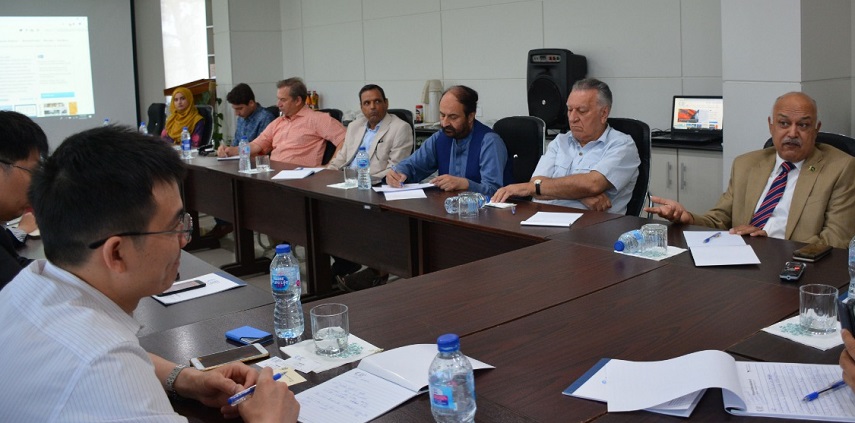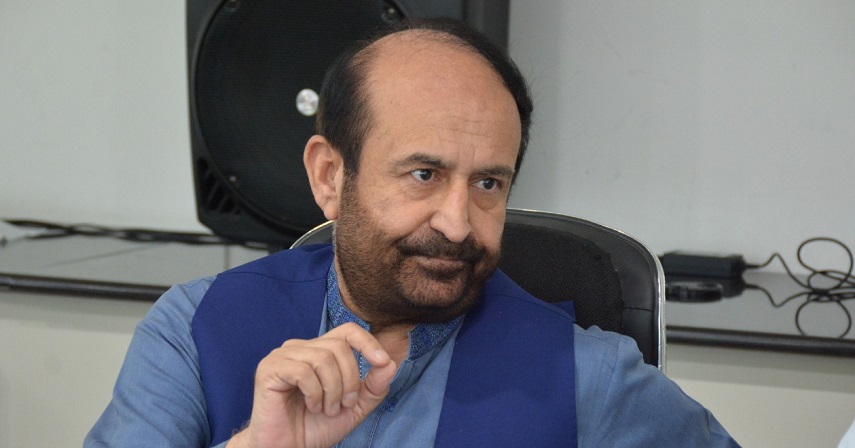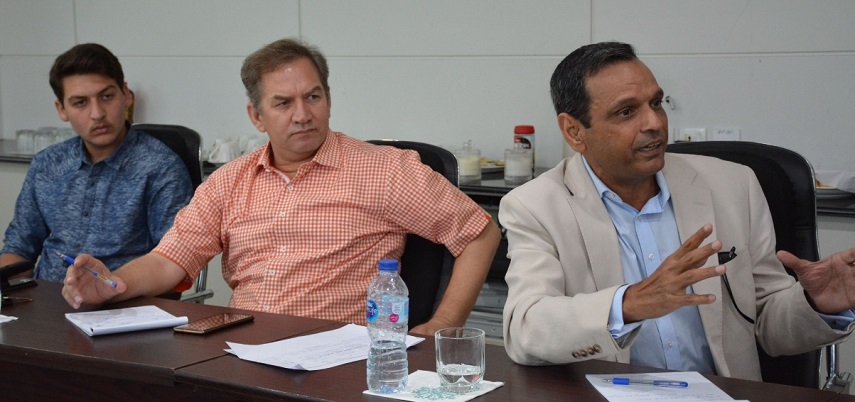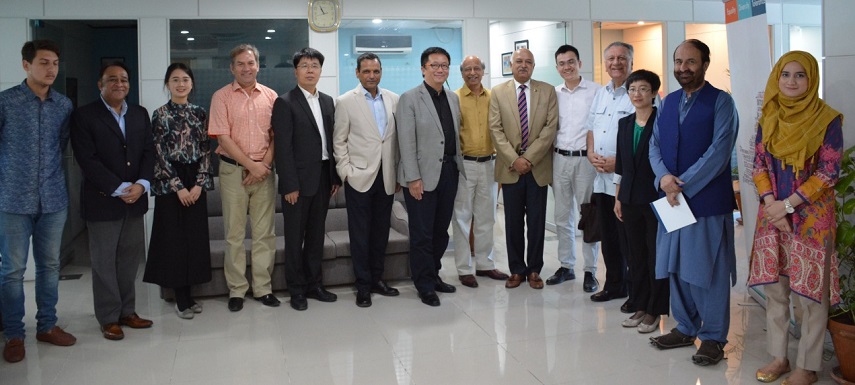Developing geo-political and strategic regional changes in the backdrop of the ongoing Afghan peace process, Modi’s thumping majority in his re-election and US-China trade war pose complicated implications for China, Pakistan and the region at large. In this context, Professor Ye Hailin stressed the need for increased regional cooperation and better ties for peace and security. He was heading a five member visiting delegation of Chinese Academy of Social Sciences (CASS) – a think tank based in Beijing, at the roundtable conference on Regional Security: Pakistan, China, Afghanistan and India, hosted by Center for Research and Security Studies (CRSS) in Islamabad on Wednesday.
Lt Gen (retd) Asif Yasin, one of the delegates from the Pakistani side, stated that the friendship between Pakistan and China is not one between the people or governments but between the hearts and minds of the two nations which has been proven over and over again. China, besides Turkey and Malaysia, has stood by Pakistan through all difficult times, and Pakistan looks forward to even better times. In fact, Pakistan’s strategy under PM Imran Khan has been one of looking towards east rather than the west. Unlike his predecessors whose first official visits post-election would center in the west, PM Imran Khan has made a note of expanding Pakistan’s ties in the east, China being his second official visit after Saudi Arabia, he said.
Regarding the ongoing US-Taliban talks, former Ambassador Qazi Humayun deliberated that the US has lost the war in Afghanistan, at an annual cost of $50 bn, but wants to recover its position on the negotiating table with Taliban. However, the Trump administration fears that if they announce a withdrawal of troops, a pre-condition by the Taliban for cease-fire, they would declare it as their victory. In this catch-22, the declining superpower has been actively boosting its strategic partnership with India and its role in Afghanistan.
Chinese-Taliban talks, during Taliban’s recent visit to Beijing, thus bode well for progress in the Afghan peace process as the two maintain a good understanding, according to Senior Journalist Tahir Khan. Keeping a regional power such as China as the guarantor in the peace process poses as a more viable option for the effectiveness of the resolution of the Afghan conflict, he added.
Pakistan, on the other hand, has been staying away from peace talks because in case if they don’t succeed, the blame should not be on Pakistan, as has been the case in the past, he said. Further, Pakistan has maintained a neutral position and looking forward to President Ghani’s visit later this month to Islamabad.
The Taliban regime have also been depicting more success on the diplomatic front as they have been visiting more countries than the Afghan regime, in Senior Journalist Hasan Khan’s view. Their leverage on the international plane is also evidenced by their success in getting their members’ names off terrorists’ list and getting their prisoners back. However, the bigger question for the peace process now remains whether there will be presidential elections in Afghanistan this September or not, he said.
Terming Modi’s thumping majority re-election as “Modi 2.0”, Professor Hailin expressed concerns regarding India’s future policy towards Pakistan. In response, Maj. Gen Athar Abbas stated the regional ramifications of India’s design and its role and influence in Afghanistan certainly leave Pakistan with limited space and many challenges for the Pakistani government and the military. However, he said that during the election, the anti-Pakistan rhetoric was only for electoral success. Having achieved that, Maj. Gen. Abbas was optimistic that, Modi will be willing to play a constructive role and resume dialogue with Pakistan, if not in the short-term, but definitely in the medium term.
Further, Lt. Gen Yasin appreciated China’s vision to “see behind the wall” vis-e-vis the US which has started to feel threatened by the Chinese not only economically but now also militarily, citing China’s latest J-20 stealth fighter aircraft and other military arsenal besides being an economic superpower since more than a decade.
The Pakistan experts for the roundtable included Lt. Gen (retd) Asif Yasin, former Defence Secretary, Maj Gen (retd) Athar Abbas, former DG ISPR, former ambassador Qazi Humayun, senior journalist Tahir Khan, senior journalist Hasan Khan and CRSS Executive Director Imtiaz Gul.

